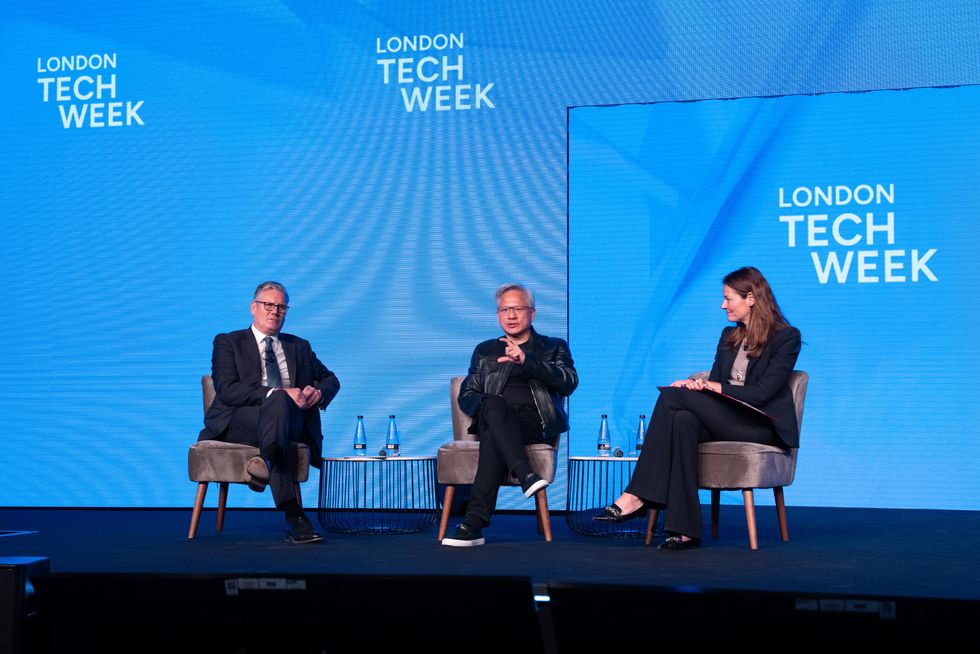A female entrepreneur has said she felt “absolutely humiliated” after being denied entry to London Tech Week because she was accompanied by her 18-month-old daughter.
Davina Schonle, founder and chief executive of AI start-up Humanvantage AI, had travelled from her home to attend the event at Olympia on Monday, 10 June. She said she had made a three-hour journey to London with her daughter, Isabella, only to be turned away on arrival because children were not allowed into the venue.
The incident occurred on the same day Labour leader Sir Keir Starmer addressed the audience at London Tech Week, an annual event expected to attract over 45,000 delegates from around the world.
“Absolutely humiliated” by exclusion
Ms Schonle, 40, shared her experience in a widely circulated post on LinkedIn, where she expressed her disappointment and frustration.
“I hate that I’m having to write this,” she said. “Today I was refused entry at London Tech Week… because I had my baby with me. It’s a three-hour drive one way for me to come to London. At this stage, I limit how many hours I am away from my baby girl.”
She added that the trip was as much about exposing her daughter to new environments as it was about attending meetings and networking for her business.
“I should be able to build my company with her by my side,” she wrote. “This moment was more than inconvenient. It was a clear reminder that, as a tech industry, we still have work to do when it comes to inclusion beyond buzzwords.
Calls for greater inclusivity in tech
Schonle, who is developing a conversational AI platform for corporate training through her company Humanvantage AI, had reportedly scheduled three meetings with potential suppliers at the event. She said the incident highlighted broader issues around inclusivity in the tech sector.
“Parents are part of this ecosystem. Caregivers are innovators, founders, investors, and leaders,” she wrote. “If major events like London Tech Week can’t make space for us, what message does that send about who belongs in tech?”
She stopped short of calling for all industry events to become family-friendly but questioned whether a more inclusive approach would be more reflective of the future. “Doesn’t our future belong to the kids?” she added.
Speaking to The Times, she said she was left feeling “angry” and “humiliated” by the experience.
Support from peers in the industry
Ms Schonle’s LinkedIn post received widespread support from within the tech and business communities. Rebecca Taylor, an expert in cyber threats and human intelligence who delivered a TED talk in 2023, replied: “The juggle is real… If you’re doing your best to make life happen and be part of the conversation, other individuals and communities should be empowering you to do that.”
Janthea Brigden, ambassador for Children at Events, described the situation as “humiliating” and said it made her feel like a “non-person”.
The incident comes amid ongoing discussions around gender equality and representation in tech. According to a recent Tech Nation report, women make up only 26 per cent of the UK’s tech workforce. That figure is even lower in technical roles.
Event organiser responds
In response to the backlash, organisers of London Tech Week issued a statement acknowledging the incident.
“We’re aware that one of our attendees wasn’t allowed to enter with their child yesterday,” a spokesperson said. “As a business event, the environment hasn’t been designed to incorporate the particular needs, facilities and safeguards that under-16s require.

“We want everyone in the tech community to feel welcome at London Tech Week. We’ve reached out directly to the person involved to discuss what happened and use this experience to inform how we approach this at LTW in the future.”
The statement did not confirm whether the policy would be reviewed ahead of future events.
Focus on diversity and inclusion
The incident has highlighted the ongoing challenges faced by women and caregivers in tech. While many conferences and corporate events have begun to introduce parent-friendly policies, others have maintained restrictions due to insurance, health and safety, or logistical concerns.
Ms Schonle’s experience has sparked renewed conversation about how events can support greater accessibility without compromising core operations. Her comments also underline the gap between diversity targets and the real-life barriers still faced by many working mothers in tech.
As London Tech Week continues throughout the week, the discussion around inclusivity and parenthood is likely to remain in the spotlight. Whether changes will be implemented in future editions of the event remains to be seen.





